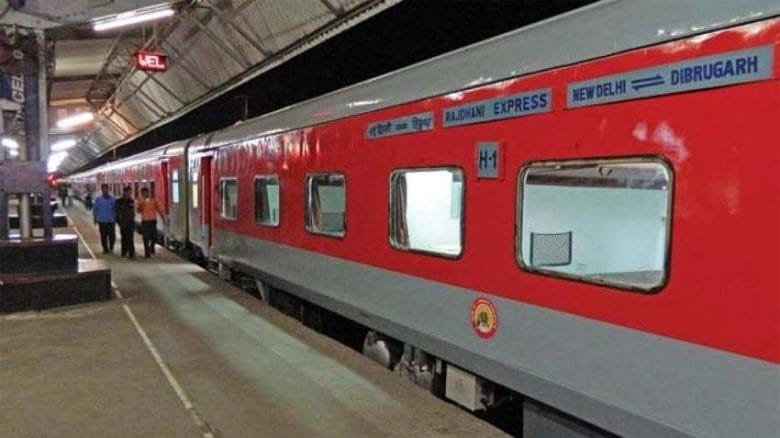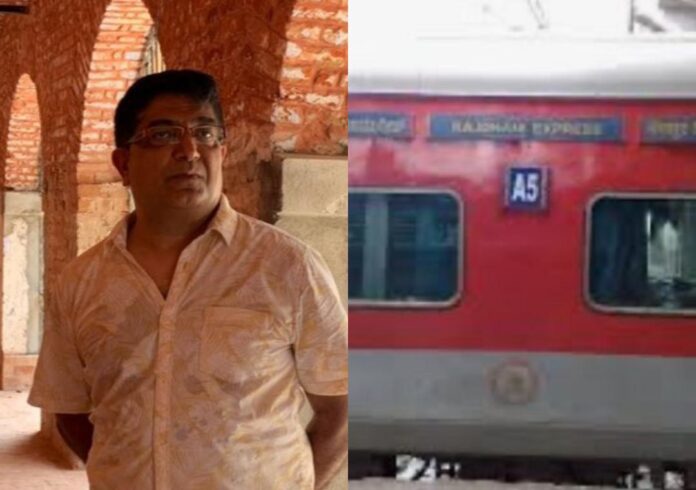Passengers Stranded For Hours Amid Delay
BJP leader and former Bengaluru Police Commissioner Bhaskar Rao has strongly criticized Indian Railways for an unexpected 8.5-hour delay of the Delhi-Bengaluru Rajdhani Express. This significant delay left passengers stranded at the platform overnight, causing severe inconvenience to families, including elderly citizens, pregnant women, and young children.
Rao expressed his frustration on social media, directly addressing railway officials and questioning the inefficiency of the system. “Seniors, pregnant women, and children spent the night on the platform. Dear Railways…officers…how many decades will you do this for?” he remarked.
A Night Of Frustration And Discomfort
Travelers aboard the Rajdhani Express faced extreme challenges due to the prolonged delay. Many, who had chosen the train for its reputation for punctuality and premium service, were left stranded with no clear communication from railway authorities regarding the situation.
Passengers reported a lack of basic amenities at the station, adding to the discomfort caused by the long wait. Families with children and elderly members were particularly affected, as they struggled to cope with the overnight inconvenience.

Bhaskar Rao Highlights Accountability Issues
In his remarks, Rao called for immediate accountability and reform within Indian Railways, emphasizing the need for improved operational efficiency. “Why do you punish us mercilessly?” he asked, reflecting the sentiment of countless travelers who rely on the railway system. Rao pointed out the recurring nature of such delays and demanded better management to prevent similar incidents in the future.
Indian Railways Faces Persistent Challenges
The incident has once again highlighted the systemic issues plaguing Indian Railways, including outdated infrastructure, operational inefficiencies, and a lack of contingency planning. Despite numerous modernization initiatives and promises of improvement, train delays remain a common grievance among passengers.
In this particular case, the delay was attributed to the late arrival of an incoming train. However, the absence of effective measures to mitigate the impact of such delays raises concerns about the overall efficiency of railway operations.
Passenger Grievances Intensify
For passengers, the delay was more than just an inconvenience. Many voiced their dissatisfaction on social media, sharing personal accounts of the ordeal. Complaints ranged from poor communication to inadequate facilities, with several travelers expressing disappointment over the lack of accountability from railway authorities.
The incident has sparked a broader conversation about the need for passenger-centric policies and practices within Indian Railways. Ensuring timely updates, providing alternative arrangements, and addressing grievances promptly are critical steps in rebuilding public trust.
A Broader Call For Railway Reforms
Rao’s criticism reflects a growing demand for meaningful reforms within the railway system. As one of the largest railway networks in the world, Indian Railways plays a crucial role in the daily lives of millions of Indians. However, incidents like these highlight the urgent need for infrastructure upgrades, enhanced technology adoption, and streamlined operations.
Passengers and experts alike are calling for investments in modernizing railway infrastructure and improving service delivery. Ensuring punctuality, reliability, and a better travel experience for passengers must be prioritized to maintain the railway system’s relevance in the modern era.

Moving Forward With Solutions
To prevent such incidents in the future, Indian Railways must adopt proactive measures. This includes better scheduling, improved communication systems, and contingency plans to address unforeseen delays. The focus should be on creating a seamless travel experience for passengers while addressing the root causes of operational inefficiencies.
The recent delay of the Rajdhani Express serves as a reminder of the challenges faced by Indian Railways and the need for immediate action to address these issues. As the conversation around railway reforms gains momentum, passengers and stakeholders alike hope for a more reliable and efficient railway system in the near future.

